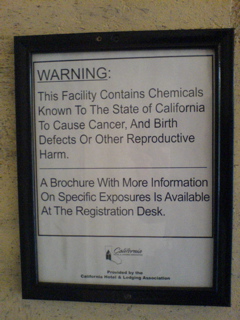Are we on the edge of worrying ourselves to death?
 Worry seems to be an everyday part of life in the western world. When I was in Africa I was stunned by the happiness and the lack of worry that I saw in people. Many would seem to be on the very edge of survival, by a western definition, and yet they were more alive than many of the people you might meet in an industrialised town. Less seemed to be more. Barry Schwartz has written an excellent book about the subject, The Paradox of Choice: Why More Is Less, and he gave a compelling overview in his talk at TED last year, which can be viewed here: “Paradox of Choice”.
Worry seems to be an everyday part of life in the western world. When I was in Africa I was stunned by the happiness and the lack of worry that I saw in people. Many would seem to be on the very edge of survival, by a western definition, and yet they were more alive than many of the people you might meet in an industrialised town. Less seemed to be more. Barry Schwartz has written an excellent book about the subject, The Paradox of Choice: Why More Is Less, and he gave a compelling overview in his talk at TED last year, which can be viewed here: “Paradox of Choice”.
In the western world of abundance, we may just have too much choice. Excessive choices create more space for regret, that is coupled with the rate of change that we live with daily to create worry and uncertainty; we end up wriddled with doubt. Almost everyone I meet is worried about something. What can we do? We can not undo the possibilities that commerce has created, we have openned Pandora’s box, but we can manage our reactions.
The secret to dealing with worry seems to rest in removing uncertainty. Work out the worst that can happen and accept that it could be so. Worry lives in the ‘What ifs?’ – be in the position to say ‘so what?’. Worry can almost always be eliminated by positive action, it is inaction that feeds worry. A worry is usually trying to prompt us to do something, so the best response is to act, rather than to procrastinate. Be specific: What are you worried about? Then seek answers and resolution, rather than just more questions.
The challenge is that today’s world constantly leads us to inaction. Through the Internet, through TV, we are simultaneously presented with more choices, that paralyse us, and pressed into less action, by the time that we loose. We must break the cycle, for the sake of ourselves, and the sake of our world. Why worry?


Too much choice, and having it be very good, and very comfortable. It’s the old “attachment leads to suffering” idea. And I agree: Uncertainty is an important source – good insight.
More here, FYI: Handling worries: keep a list, schedule them, and have a worry place
http://ideamatt.blogspot.com/2005/11/handling-worries-keep-list-schedule.html